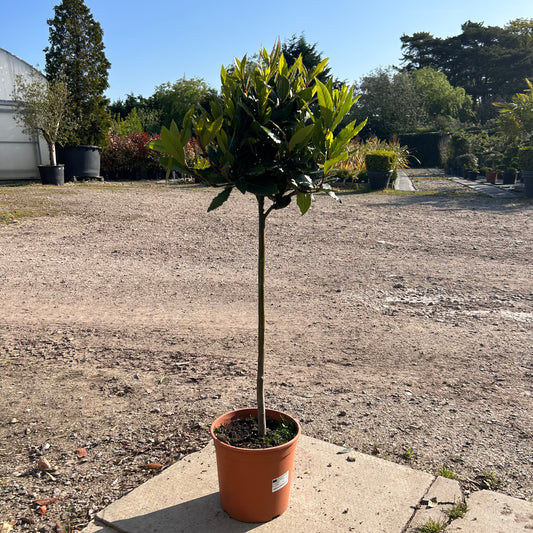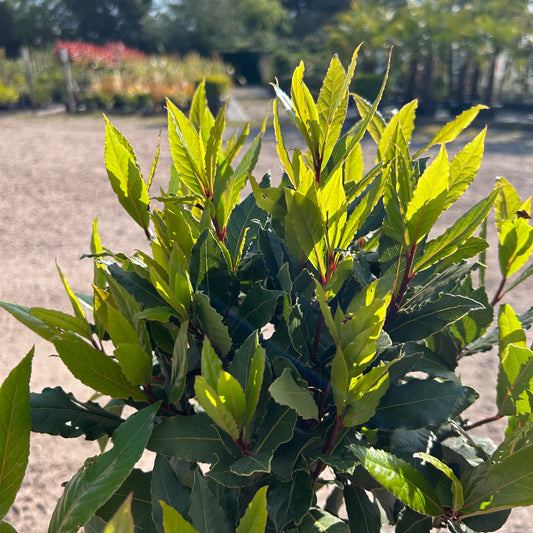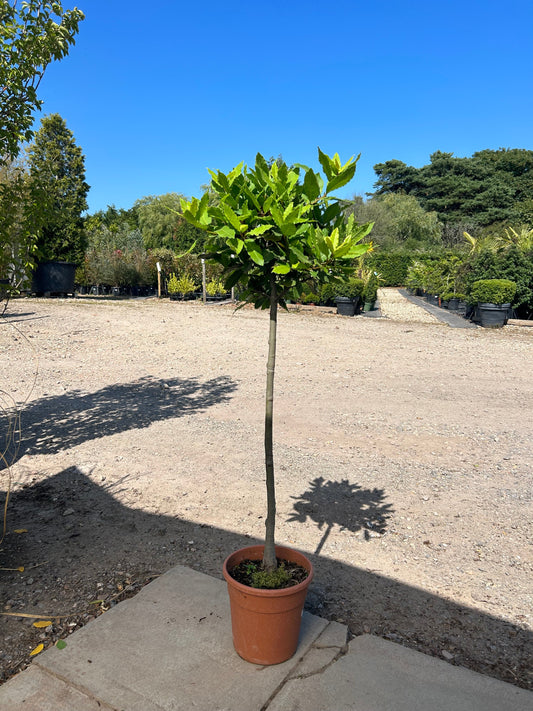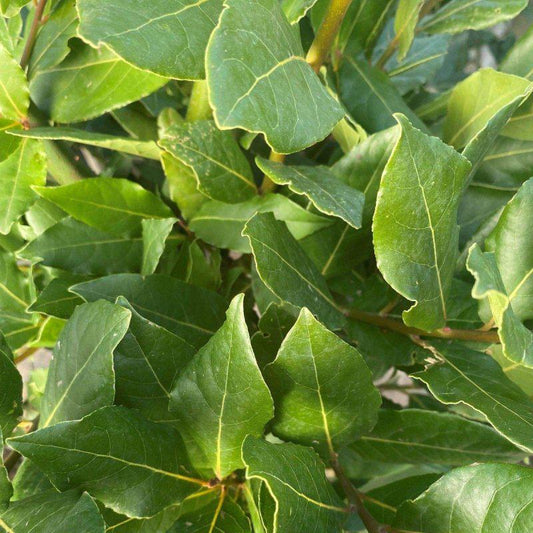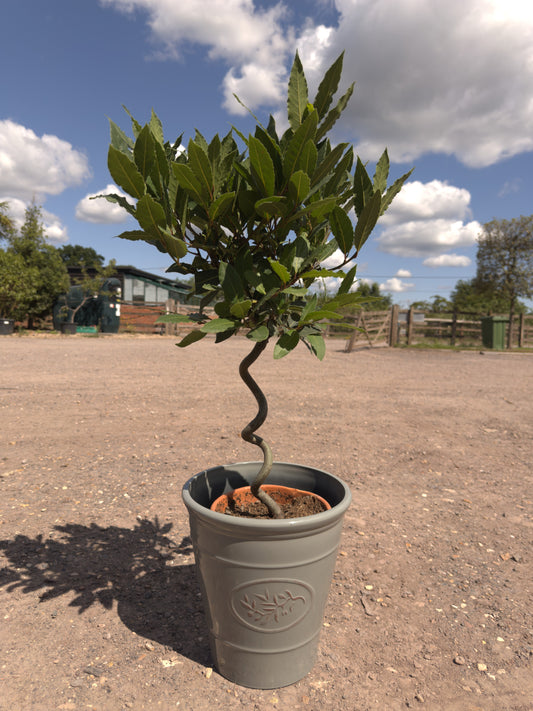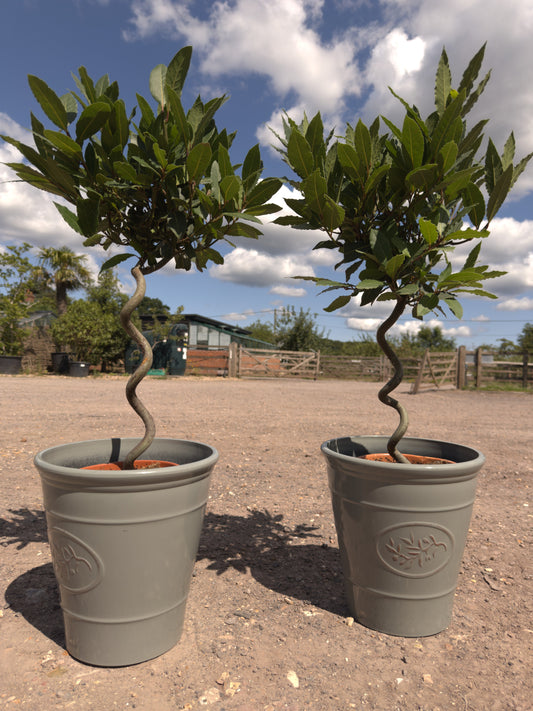A Comprehensive Guide to Lemon Citrus Trees in the UK: Cultivate a Slice of Mediterranean Bliss
Inside this Article:
- Understanding Lemon Citrus Trees
- Planting Your Lemon Citrus Tree
- Caring for Your Lemon Tree
- Common Pests and Diseases
- Harvesting and Using Your Lemons
- Lemon Citrus Trees in the UK
Lemon citrus trees are not just fruit bearers; they're symbols of vibrant life, offering a slice of the Mediterranean to the UK's diverse climate. Cultivating lemon trees in cooler climates may seem challenging, yet with informed care and a bit of dedication, the dream of harvesting your own lemons can become a reality. This comprehensive guide aims to navigate through the process of understanding, planting, and caring for lemon citrus trees in the UK, ensuring a lush, fruitful garden.
Understanding Lemon Citrus Trees
The History and Popularity in the UK
Lemon trees, with their deep roots in Asian soil, have found a beloved place in the UK, cherished for their year-round evergreen presence, intoxicating fragrance, and tangy fruits. Despite the UK's cooler climate, these resilient trees have adapted with care, thriving in protected environments and bringing a taste of exotic lands to British homes and gardens.
Varieties Suitable for the UK Climate
Choosing a lemon tree variety that can handle the UK's temperament is key. The 'Meyer' lemon, known for its cold hardiness and sweet, less acidic fruit, stands out as a suitable choice, offering a higher success rate for UK gardeners. It's essential to select a variety that not only survives but flourishes, ensuring a rewarding citrus growing experience.
Planting Your Lemon Citrus Tree
Selecting the Right Location
A lemon tree's success starts with the right location. A south-facing, sunny spot, shielded from harsh winds, can mimic the tree's native climate, offering the warmth and light necessary for growth. For those with limited outdoor space, a well-lit conservatory or windowsill can also serve as a cozy home for a potted lemon tree.
Soil and Pot Requirements
Lemon trees demand well-draining, fertile soil with a slightly acidic pH to thrive. Whether in the ground or a container, ensuring proper drainage and the right soil mix lays the foundation for healthy growth. Containers should offer ample space for root expansion and have drainage holes to prevent waterlogging.
Caring for Your Lemon Tree in the UK
Watering and Feeding
Consistent watering, allowing the soil to dry slightly between sessions, paired with monthly fertilization during the growth period, supports robust health. It's crucial to balance moisture levels, as over-watering can lead to root rot, while under-watering stresses the tree, impacting its yield and health.
Pruning and Maintenance
Pruning not only shapes your lemon tree but also encourages healthy growth and fruit production. Annual pruning to remove dead or overlapping branches ensures better air circulation and sunlight penetration, vital for the tree's overall vitality.
Winter Care Tips
The UK winter can be harsh for lemon trees. Utilizing greenhouse spaces, conservatories, or bringing potted trees indoors can protect them from freezing temperatures. For trees planted in the ground, protective measures like fleece wraps can offer the needed warmth to survive the winter months.
Common Pests and Diseases
Identification and Prevention
Regular monitoring for pests such as aphids, spider mites, and scale insects can prevent infestations. Healthy trees are less susceptible to diseases; thus, maintaining optimal growing conditions is crucial. Early identification and intervention can save your tree from significant damage.
Treatment Options
Organic treatments and targeted chemical solutions can effectively manage pests and diseases. Natural predators, neem oil, and insecticidal soaps offer environmentally friendly options, while more severe infestations may require specific pesticides.
Harvesting and Using Your Lemons
Knowing When to Harvest
Lemons are ready for harvest when they're fully coloured and slightly soft to the touch. Unlike some fruits, lemons don't ripen off the tree, so patience is key. The reward of tangy, home-grown lemons is worth the wait.
Creative Ways to Use Your Lemons
The versatility of lemons extends beyond culinary uses to include cleaning, health, and beauty applications. Homemade lemonade, lemon zest for baking, and natural cleaning agents are just a few ways to utilize your harvest.
Lemon Citrus Trees in the UK
Cultivating lemon citrus trees in the UK is a rewarding journey. With proper care, the right variety, and a bit of patience, your garden or home can boast a flourishing lemon tree, adding beauty, fragrance, and flavour. For an extensive selection of citrus trees and care essentials, explore Web Garden Centre and their dedicated citrus collection.
Growing lemon citrus trees in the UK, though challenging, brings immense satisfaction. With attentive care, the right conditions, and a spirit of adventure, your endeavor to grow these beautiful, fruitful trees can bloom into reality. For all things citrus, from trees to expert advice, Web Garden Centre is your go-to destination.
FAQs
-
How often should I water my lemon tree?
Water your lemon tree once the top inch of soil feels dry to the touch. During warmer months, this may mean watering as often as once or twice a week, while in winter, less frequent watering is required. -
Can lemon trees survive the UK winter?
Yes, with proper care. Lemon trees are not frost-hardy, so it's best to bring potted trees indoors or to a greenhouse. For outdoor plants, use fleece wraps and mulch to protect the roots. -
How long before a lemon tree bears fruit?
Lemon trees typically begin to bear fruit in their 3rd or 4th year, but trees grown from seed may take longer. Proper care and favorable conditions can encourage earlier fruiting. -
Do lemon trees need a lot of sunlight?
Yes, lemon trees require full sun to produce fruit. Aim for at least 6 to 8 hours of direct sunlight daily. In less sunny areas, a greenhouse or a south-facing window can help. -
Can I grow a lemon tree indoors in the UK?
Absolutely. Choose a dwarf variety and ensure it gets plenty of sunlight, like near a south-facing window. Keep the air humid and the temperature consistent for the best results. -
What type of soil is best for lemon trees?
Lemon trees thrive in well-draining, slightly acidic soil with a pH between 6.0 and 7.0. Using a citrus potting mix is ideal, especially for potted trees. -
When is the best time to plant a lemon tree in the UK?
Spring is the best time to plant a lemon tree, as the risk of frost has passed and warmer temperatures can stimulate growth. -
How do I protect my lemon tree from pests?
Regularly inspect your tree for signs of pests. Natural predators, neem oil, and insecticidal soaps are effective organic options for controlling most common pests. -
Why are the leaves on my lemon tree turning yellow?
Yellowing leaves can be a sign of over-watering, under-watering, or nutrient deficiencies. Ensure proper watering and feed your tree with a balanced citrus fertilizer to address potential issues. -
Can I prune my lemon tree in winter?
It's best to prune lemon trees in late winter or early spring before new growth begins. This timing helps the tree recover and grow more vigorously in the growing season.
Below is the JSON-LD FAQ schema that includes all of your provided questions and answers: ```json { "@context": "https://schema.org", "@type": "FAQPage", "mainEntity": [ { "@type": "Question", "name": "How often should I water my lemon tree?", "acceptedAnswer": { "@type": "Answer", "text": "Water your lemon tree once the top inch of soil feels dry to the touch. During warmer months, this may mean watering as often as once or twice a week, while in winter, less frequent watering is required." } }, { "@type": "Question", "name": "Can lemon trees survive the UK winter?", "acceptedAnswer": { "@type": "Answer", "text": "Yes, with proper care. Lemon trees are not frost-hardy, so it's best to bring potted trees indoors or to a greenhouse. For outdoor plants, use fleece wraps and mulch to protect the roots." } }, { "@type": "Question", "name": "How long before a lemon tree bears fruit?", "acceptedAnswer": { "@type": "Answer", "text": "Lemon trees typically begin to bear fruit in their 3rd or 4th year, but trees grown from seed may take longer. Proper care and favorable conditions can encourage earlier fruiting." } }, { "@type": "Question", "name": "Do lemon trees need a lot of sunlight?", "acceptedAnswer": { "@type": "Answer", "text": "Yes, lemon trees require full sun to produce fruit. Aim for at least 6 to 8 hours of direct sunlight daily. In less sunny areas, a greenhouse or a south-facing window can help." } }, { "@type": "Question", "name": "Can I grow a lemon tree indoors in the UK?", "acceptedAnswer": { "@type": "Answer", "text": "Absolutely. Choose a dwarf variety and ensure it gets plenty of sunlight, like near a south-facing window. Keep the air humid and the temperature consistent for the best results." } }, { "@type": "Question", "name": "What type of soil is best for lemon trees?", "acceptedAnswer": { "@type": "Answer", "text": "Lemon trees thrive in well-draining, slightly acidic soil with a pH between 6.0 and 7.0. Using a citrus potting mix is ideal, especially for potted trees." } }, { "@type": "Question", "name": "When is the best time to plant a lemon tree in the UK?", "acceptedAnswer": { "@type": "Answer", "text": "Spring is the best time to plant a lemon tree, as the risk of frost has passed and warmer temperatures can stimulate growth." } }, { "@type": "Question", "name": "How do I protect my lemon tree from pests?", "acceptedAnswer": { "@type": "Answer", "text": "Regularly inspect your tree for signs of pests. Natural predators, neem oil, and insecticidal soaps are effective organic options for controlling most common pests." } }, { "@type": "Question", "name": "Why are the leaves on my lemon tree turning yellow?", "acceptedAnswer": { "@type": "Answer", "text": "Yellowing leaves can be a sign of over-watering, under-watering, or nutrient deficiencies. Ensure proper watering and feed your tree with a balanced citrus fertilizer to address potential issues." } }, { "@type": "Question", "name": "Can I prune my lemon tree in winter?", "acceptedAnswer": { "@type": "Answer", "text": "It's best to prune lemon trees in late winter or early spring before new growth begins. This timing helps the tree recover and grow more vigorously in the growing season." } } ] } ```


